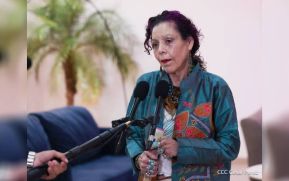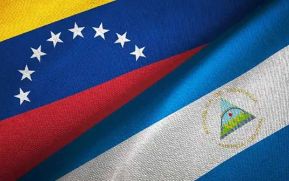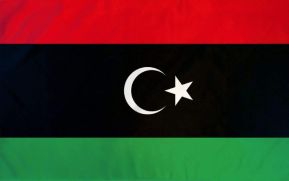Soy extranjero en este país, mi nacionalidad es estadounidense. Resido en Nicaragua desde hace 5 años. Vine por primera vez a desarrollar estrategias para mejores prácticas que contribuyan limpiar las aguas de mercurio, soy ambientalista y emprendedor, procuro emprender en negocios con visión de desarrollo para las comunidades donde quiero trabajar, para crecer en conjunto con la gente que me rodea.
Ahora que conozco al pueblo de Nicaragua, porque he convivido con ellos, con su gente humilde, trabajadora, he estudiado su historia, y puedo comprender todo lo que han vivido y sufrido en su historia. .
En esta semana he leído acerca de la noticia difundida sobre la intención del Congreso de Estados de Unidos de Norteamérica de imponer sanciones a Nicaragua, porque según la congresista que promueve la iniciativa de ley, Nicaragua debe de ser sancionada porque su actual Gobierno no promueve la democracia.
Personalmente no creo que dicha iniciativa de ley se apruebe por el Senado norteamericano, ni mucho menos que llegue a la mesa del presidente para ser firmado., y opino esto por lo siguiente:
Estados Unidos ya tiene suficiente problemas en sus manos, lo último que necesitan es poner sus dedos en los asuntos de otros países. Estados Unidos, Europa y la mayoría de Asia están al borde de un colapso político, financiero y social.
Según la historia, y el derecho internacional les asiste, el pueblo de Nicaragua fue favorecido en 1986 por sentencia dictada por la Corte Internacional de Justicia, la cual condena al Gobierno de Estados Unidos a indemnizar al pueblo de Nicaragua por haber realizado acciones que violentan el derecho internacional en perjuicio de la población nicaragüense, al haber sido el gobierno estadounidense patrocinador de la guerra contra el pueblo de Nicaragua y por haber minado el país; dicho fallo a la la fecha Estados Unidos no lo ha cumplido. Si bien es cierto en 1992 el Gobierno de turno de Nicaragua retiro los cargos y perdono la deuda al Gobierno de Estados Unidos, el derecho realmente a perdonar esa deuda es del pueblo de Nicaragua, y el Gobierno no tomo en cuenta al pueblo, por lo tanto ese derecho a cobrar a Estados Unidos esa deuda aún subsiste.
¿No sería más bien el Gobierno de Nicaragua a petición de sus ciudadanos, quien debe de demandar a Estados unidos? ¿Tiene autoridad moral el Gobierno de Estados Unidos interferir en el quehacer político de Nicaragua, aún si a la fecha no ha cumplido con un fallo de la Corte Internacional de Justicia? ¿Ha intentado el Gobierno de Estados Unidos por respeto a la moral y la democracia que hoy tanto abandera compensar al pueblo de Nicaragua por el daño causado, el que fue demostrado y sustentado por la sentencia de la Corte Internacional de Justicia?
Antes de levantar la piedra contra Nicaragua, debe primero considerar el Gobierno de Estados Unidos si tiene autoridad moral, y revisar si está libre de pecado.
Nicaragua necesita recursos para el desarrollo de su población, y si se le va a limitar el acceso a financiamiento de fondos por intenciones como la que promueve la iniciativa de ley presentada por el Congreso de Estados Unidos esta semana, valdría la pena que el Gobierno de Nicaragua a petición de su población considere lo siguiente:
El primer veredicto de la Corte Internacional de Justicia no impuso una cifra a pagar, pero entre 2011- 2012 el Presidente Ortega demandó el pago de 17 billones de dólares, cantidad que a la fecha aplicando el factor de la inflación representaría 37,358,585,766.42 millones de dólares. Cabe mencionar que dicho factor de inflación se estima en dicha cifra desde 1986.
Estados Unidos no reconoció la jurisdicción de la Corte Internacional de Justicia cuando falló a favor de Nicaragua en 1986, alegó que la Corte no tenia jurisdicción. Pero curiosamente existe otro fallo en el cual la Corte ha fallado a favor de Estados Unidos, y en este caso sí ha reconocido la jurisdicción de la Corte Internacional de Justicia; me refiero a la disputa entre Estados Unidos y Canada, acerca de la delimitación marítima en 1984 bahía de Maine, Golfo de Canada (yo vivía en Maine cuando sucedió este fallo); y otro fallo más reciente que involucra a China y Filipinas, conflicto del sur del mar chino, donde la Corte voto a favor de las Filipinas. ¿Cómo puede reconocer la jurisdicción de la Corte Internacional en estos casos, y en el único caso que Estados Unidos ha perdido ante la Corte que es el caso de Nicaragua, no reconoce la jurisdicción?
Para exigir a otros países que cumplan con el derecho y las normas internacionales, el país que señala tiene que dar el ejemplo.
¿Por qué Nicaragua es la excepción? ¿Por qué no hacer uso de su derecho?
Se necesita autoridad moral y ser ejemplo para exigir a los demás. Estados Unidos no ha cumplido con el pueblo de Nicaragua, y pretender ahora sancionar a Nicaragua con limitar el acceso a fondos internacionales para su desarrollo económico y social afecta en primer lugar a la población más vulnerable, la niñez, las mujeres, es como volver a violentar esas normas que en la década de los 80 causaron tanto perjuicio a la población más vulnerable. No considero que el Gobierno de Estados Unidos deje prosperar esa iniciativa de ley y vuelva a causar daño el pueblo nicaragüense, porque eso sería retroceder, y como dicen en América latina es hacer “llover sobre mojado”.
///
ENGLISH VERSION:
You preach by example!
I am foreigner in this country; I have lived in Nicaragua for the last five years. I came for the first time to work on development of best practices to eliminate mercury in water, I am an environmentalist and entrepreneur, I try to start up businesses with a vision to promote development of the communities where I work together with the people.
Now that I know the Nicaraguan people because I have lived among them, a humble hard working people, I have studied their history and I now understand what they have lived through and suffered.
This week I read the news about the intention of the United States Congress to impose sanctions on Nicaragua because, according to the Congresswoman who is sponsoring this Bill, Nicaragua must be sanctioned because its government does not promote democracy.
Personally I do not believe the United States Senate will approve this Bill, or that it will reach the desk of the President for his signature. The reason for my thinking is the following:
The United States has enough problems on its hands and the last thing it needs is to meddle in the affairs of other countries. The United States, Europe and most of the Asian countries are on the edge of political, financial and social collapse.
History and International law are on the side of Nicaragua. In 1986 the International Court of Justice ruled in favor of Nicaragua. It condemned the United States and ordered that it pay compensation to the Nicaraguan people for covert activities that violated international law to the detriment of the Nicaraguan people because the United States government had sponsored a war against the Nicaragua and planted land mines in the country. The United States has failed to comply with this ruling of the International Court of Justice. While it is true that in 1992 the government in power in Nicaragua at the time withdrew the charges and pardoned the debt, the right to pardon this debt belongs to the Nicaraguan people and because the government did not take the people into account when this decision was made, the right to demand that this compensation be honored still remains.
Should not the government of Nicaragua, at the request of its citizens, be the one suing the United States? Does the United States government have the moral authority to interfere in Nicaragua’s political affairs when to date it has failed to comply with the ruling of the International Court of Justice? Has the United States, based on the respect for morality and democracy that it preaches, compensated the people of Nicaragua for the harm it has caused which was clearly proven and supported by the ruling of the International Court of Justice?
Before throwing stones at Nicaragua, the government of the United States should first ask if it has the moral authority and whether it is free of sins.
Nicaragua needs resources for the development of its people and if actions are taken to block access to financial resources based on considerations like those contained in the initiative presented by the Congress of the United States this week, it is worthwhile that the government of Nicaragua at the request of its people consider the following:
The ruling of the International Court of Justice did not establish a definitive amount for compensation, however in 2011-2012 President Ortega demanded that seventeen billion dollars be paid. As of today, inflation factored in, this would surpass $37,358,585,766.42. It should be noted this inflation factor is based on the amount established in 1986.
The United States did not recognize the jurisdiction of the International Court of Justice when it ruled in favor of Nicaragua in 1986 stating that the Court did not have jurisdiction, but curiously there is another Sentence in which the Court ruled in favor of the United States and in this instance the United States recognized the jurisdiction of the International Court of Justice. I am referring to the dispute between the United States and Canada regarding the 1984 maritime delimitation dispute in the Bay of Maine, Gulf of Canada (I lived in Maine when this ruling occurred). There is another more recent case involving China and the Philippines, the conflict in the South China Sea, in which the Court ruled in favor of the Philippines. How can the United States recognize the jurisdiction of the International Court in these cases but in the case of Nicaragua before the Court in which the United States lost, the United States does not recognize the jurisdiction of the Court?
To demand that other countries respect the rule of law and international norms, the country making these demands must be an example.
Why is Nicaragua an exception? Why should not Nicaragua be able to demand its rights?
It is necessary to have moral authority and be an example to demand the same of others. The United States has not fulfilled its obligation to the people of Nicaragua and to promote sanctions against Nicaragua by blocking access to international funds that it needs for economic and social development will in the first place affect the most vulnerable sectors of the population: women and children. It would be going back to violations of norms that in the decade of the eighties caused such harm to the most vulnerable sectors of the population. I don’t believe that the government of the United States should allow this initiative to become law and once again inflict great suffering on the Nicaraguan people, because this would be going backward and as the Latin American saying goes it would be “llover sobre mojado” (the same old story).


















